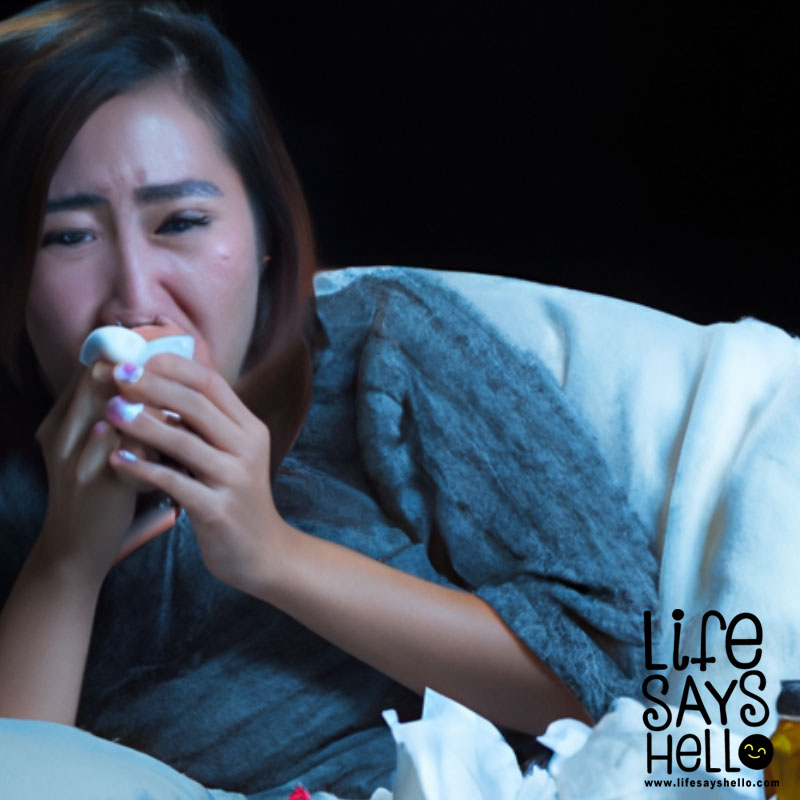Understanding Mumps: Decoding the Symptoms and Prevention Strategies

Hey there! If you're curious about those pesky mumps or found yourself surfing the web following a case that cropped up in your community, we've got you covered! We're breaking down the ins and outs of mumps, including symptoms to watch out for, prevention strategies and how to handle them if they do show up.
Introduction
Mumps isn't a fun disease, but it's essential to be aware of what it is and how to deal with it. Think of this guide as your go-to resource for all things mumps-related, from recognizing symptoms to understanding how the virus spreads and the best ways to prevent it. Knowledge is power, and having an informed, casual conversation about mumps is the first step in keeping yourself and your community safe.
What are Mumps?
Mumps is a contagious disease caused by a virus called, you guessed it, the mumps virus. This critter likes to target the parotid glands, found just below and in front of your ears. These glands are responsible for producing saliva, and an infection can cause them to become painfully swollen. Now, mumps isn't just limited to these glands; in some cases, it could also affect other areas of the body, such as the testicles or ovaries, causing additional discomfort.
People usually experience symptoms 16-18 days after they've been infected, although sometimes they may not even notice they have the illness. However, recognizing the signs and understanding how mumps spreads can keep the disease under control and prevent it from ruining those Friday night hangouts.
Symptoms of Mumps
The first bunch of mumps symptoms can fly under the radar, often mistaken for something less sinister:
- Fever
- Headache
- Muscle aches
- Fatigue
- Loss of appetite
But as the infection progresses, things can escalate pretty quickly. Mumps is famous (or rather, infamous) for causing some not-so-pleasant symptoms:
- Swelling of the parotid glands - The signature symptom of mumps, the glands in front of and below your ears can become tender and swollen. This can make eating, speaking, and even smiling a challenge until the swelling goes down.
- Testicular inflammation - In some guys, mumps can cause a condition called orchitis, where the testicles become red, swollen, and painful up to several days.
- Ovarian inflammation - In less than 5% of women with mumps, the ovaries can become inflamed, which can lead to abdominal pain, vomiting, and fever.
Keep in mind; mumps could also be asymptomatic, meaning it's totally possible to have the infection and not even know it.
Causes and Spread of Mumps
Alright, so clearly mumps aren't a great time, but how does this virus catch people unaware? The mumps virus is a sneaky little thing; it's part of the paramyxoviruses family and likes to hitchhike in droplets of saliva or mucus when someone with the infection coughs or sneezes. It can also spread through close personal contact, like sharing a drink or giving someone a peck on the cheek.
Anyone can catch mumps, but there are undoubtedly people more at-risk:
- Unvaccinated individuals: Those who haven't received the MMR (measles, mumps, rubella) vaccine are more likely to get mumps.
- International travelers: The virus can pop up in different regions of the world, so traveling might put you at greater risk.
- College students: Close quarters and shared spaces on campuses can be a breeding ground for the spread of the virus.
Preventing Mumps
The good news is there are effective ways to keep mumps from messing up your stuff. The most crucial strategy? Vaccination! The MMR vaccine covers mumps, measles, and rubella (three birds, one stone) and is a powerful weapon to protect yourself and others. Two doses of the MMR vaccine are 88% effective in preventing mumps - not too shabby! Plus, vaccination helps stop the spread of the virus in a community, which is always a win, right?
Here are some additional prevention tips:
- Keep your hands clean: Wash them frequently and invest in some hand sanitizer.
- Cover your mouth: If you cough or sneeze, do it into a tissue or the crook of your elbow.
- Don't share personal items: Avoid sharing drinks, utensils, or anything else that might have been, well, inside someone else's mouth.
- Stay home if you're feeling unwell
Treatment of Mumps
Now, if mumps do happen to make an appearance in your life, there's no specific antiviral medication that'll immediately kick them to the curb. However, it's important to consult your healthcare professional for guidance and care. Most of the treatments available are geared towards relieving those gnarly symptoms and staying comfortable. Some things you can do at home include:
- Taking over-the-counter pain relievers (like ibuprofen or acetaminophen) to manage fever or pain.
- Applying a warm or cold compress to swollen glands can help alleviate some of that discomfort.
- Sucking on ice chips or drinking cold water can provide temporary relief from swollen salivary glands.
- Rest up and stay hydrated!
Conclusion
Mumps might be sneaky, but now you're equipped to handle them like a pro. By recognizing symptoms, understanding the virus and its spread, and arming yourself with prevention strategies, you can stop these pesky mumps in their tracks - or at least minimize their impact. So go forth, and share your newfound knowledge with your friends, family, and community. Knowledge truly is power when it comes to keeping everyone safe and healthy!




Comments